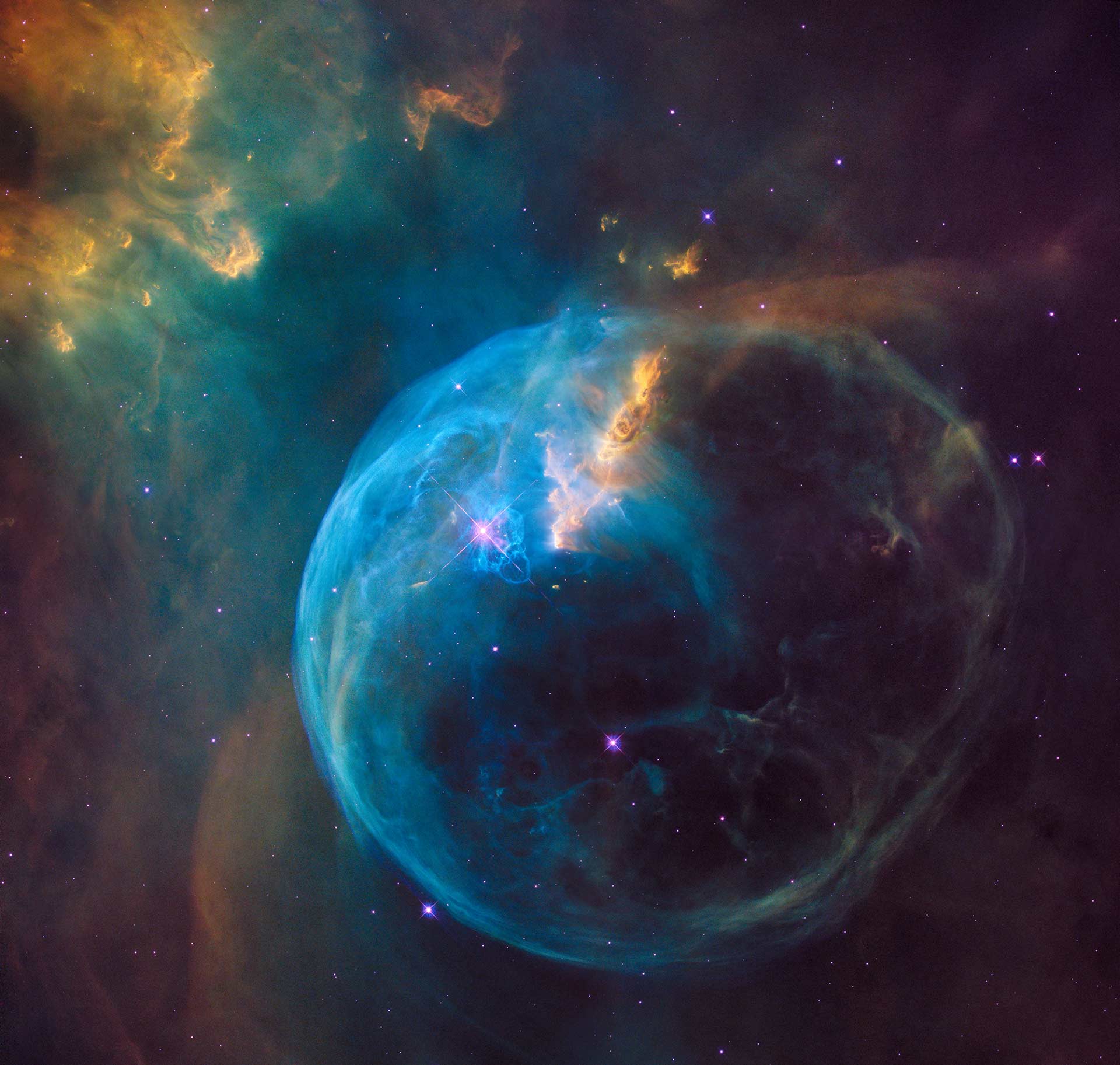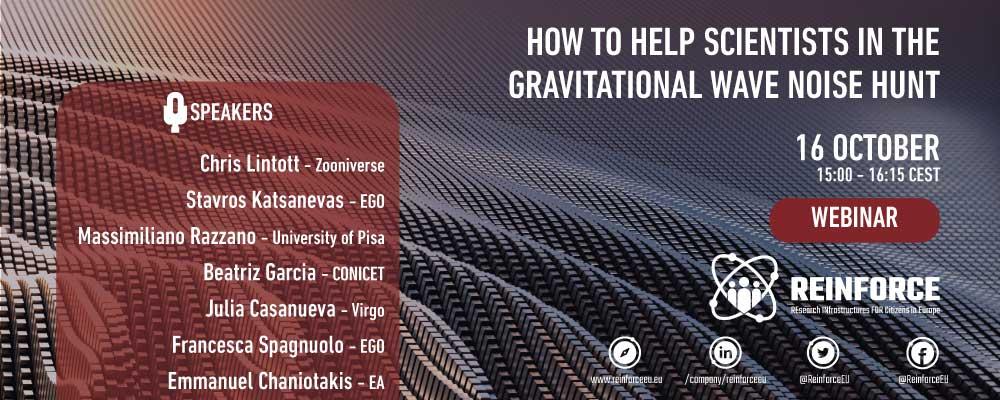How to help scientists in the Gravitational Wave noise hunt
Description and scope
The sensitivity of Gravitational Waves detectors is limited by several types of noise, called glitches, whose presence affects the quality of the data. The glitches can have various origins, having a stationary nature (e.g. a noise signal with a stable frequency) or being transient on various timescales. In order to optimize and run the interferometers it is fundamental to identify the sources of noise and reduce or eliminate its origin.
In this framework, citizen scientists can play a fundamental role by looking at chunks of data and identify the presence of noise, creating the basis to train machine learning algorithms that will automatically recognize and isolate noise in GW data, thus providing a monitoring of the noise with an unprecedented detail. Citizen scientists’ support will be crucial also to isolate astrophysical signals that cannot easily be modeled with the general relativity equations, and whose shape is unknown, such as supernovae ones.
In REINFORCE, the citizen science activities will support the optimization of the Virgo detector, allowing citizens to learn the basics of GW detection techniques, and how the noise signals and GW signals look. One of the innovative aspects of the project is that it aims to include diverse and underrepresented groups in science, by providing them with tools to overcome specific barriers, such as the sonification of data for visually-impaired people.
The webinar aims to give an overview of the first of REINFORCE Large Scale Citizen Science demonstrators which are the key vehicles that the project will utilise in order to bring frontier science and society together, showcasing the issue that the citizens will be asked to help in solving, how this activity will be performed relying on Zooniverse resources and technologies, and how the sonification of data will allow to widen the spectrum of people potentially involved.
Who should attend?
- Potential citizen scientists
- Gravitational Wave Astronomy researchers and academics
- Members of the physics and astronomy community
- Educators
You will learn:
- How citizens can play an active role in the advance of ground-breaking research
- How REINFORCE demonstrator about Gravitational Wave Noise Hunting will be developed
- How the project will work to include diverse and underrepresented groups in science
AGENDA and PPT PRESENTATIONS
15:00-15:05 - Welcome - Chris Lintott (Zooniverse)
15:05-15:12 - Broad overview - Stavros Katsanevas (EGO, Project Coordinator)
15:12-15:25 - REINFORCE Gravitational Wave Noise Hunting Demonstrator - Massimiliano Razzano (University of Pisa, WP3 leader)
15:25-15:40 - The use of sonification in REINFORCE - Beatriz Garcia (CONICET)
15:40-15:50 - Virgo and international GW network - Julia Casanueva (Virgo)
15:50-15:55 - EU programs at EGO - Francesca Spagnuolo (EGO, EU Program Coordinator)
15:55-16:05 - GW and Citizen Science for education - Emmanuel Chaniotakis (EA)
16:05-16:15 - Q&A and wrap-up
In case you missed it, watch the webinar here:
Key Speakers
- Chris Lintott
-
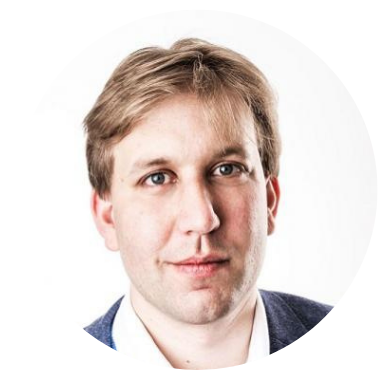 Chris Lintott is the Principal Investigator for Zooniverse and for Galaxy Zoo. He leads the development and deployment of the Zooniverse platform in order to provide a resource for the community of citizen science researchers and participants. He is an author on more than 100 peerreviewed papers which utilize or describe citizen science data and serves as the lead of the citizen science program for the LSST program. His work with Zooniverse is recognized by the Tinsley award of the American Astronomical Society, the Kelvin Medal of the Institute of Physics and by the Royal Society and Royal Astroomical Society. An expert in science communication, he co-presents the BBC’s ‘Sky at Night’ series and writes for the Times and elsewhere.
Chris Lintott is the Principal Investigator for Zooniverse and for Galaxy Zoo. He leads the development and deployment of the Zooniverse platform in order to provide a resource for the community of citizen science researchers and participants. He is an author on more than 100 peerreviewed papers which utilize or describe citizen science data and serves as the lead of the citizen science program for the LSST program. His work with Zooniverse is recognized by the Tinsley award of the American Astronomical Society, the Kelvin Medal of the Institute of Physics and by the Royal Society and Royal Astroomical Society. An expert in science communication, he co-presents the BBC’s ‘Sky at Night’ series and writes for the Times and elsewhere. - Stavros Katsanevas
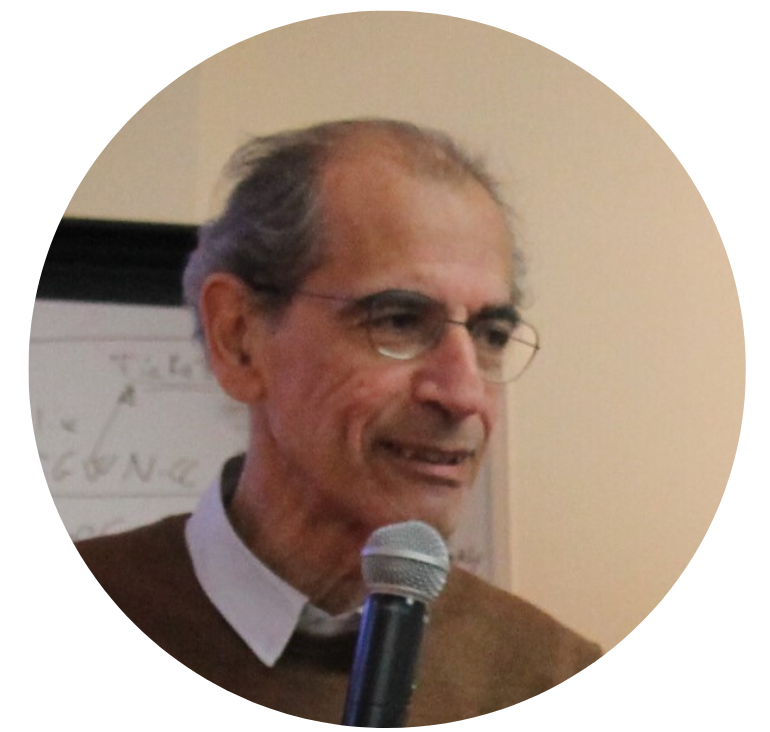
Stavros Katsanevas, professor exceptional class at University Paris Diderot, is the director of the European Gravitational Observatory (2018-). He has served as director of the Laboratory of Astroparticle Physics and Cosmology (APC, 2014-2017), deputy director of the National Institute of Nuclear and Particle Physics (IN2P3) of CNRS responsible for Astroparticle Physics and Cosmology (2002-2012), coordinator of the EU funded ERANET ASPERA (2006-2012) gathering the European agencies funding Astroparticle Physic and first chairman of the European Consortium of Astroparticle Physics (APPEC) (2012-2015).
- Massimiliano Razzano
-
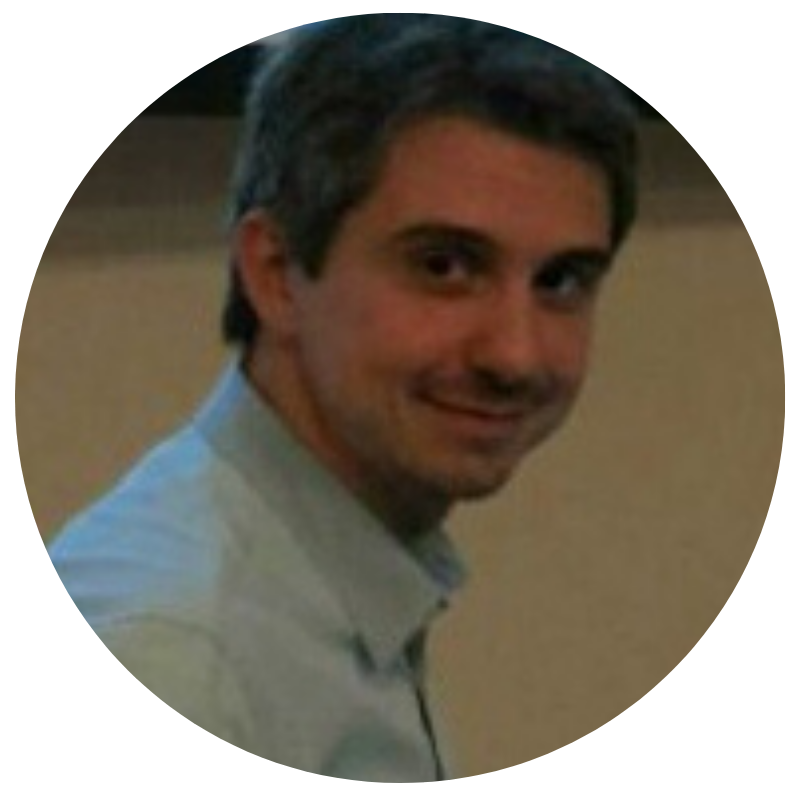 Massimiliano Razzano is an Associate Professor at the Department of Physics at the University of Pisa. His principal research interests are gravitational wave physics and astroparticle physics, with particular focus on multimessenger analysis and innovative data analysis methods including deep learning. He is member of the Virgo collaboration since 2013.
Massimiliano Razzano is an Associate Professor at the Department of Physics at the University of Pisa. His principal research interests are gravitational wave physics and astroparticle physics, with particular focus on multimessenger analysis and innovative data analysis methods including deep learning. He is member of the Virgo collaboration since 2013. - Beatriz García
-
 Beatriz García holds a PhD in Astrophysics at the National University of La Plata. She is a scientific Researcher from the CONICET, Vice director of ITeDA, past president of the Commission of Education and Development of the Astronomy of the International Astronomical Union (2015-2018). She boasts also the publication of more than 100 papers and more than 100 articles on Education. She is currently professor at the National Technological University, Faculty Mendoza, and at the National University of Cuyo.
Beatriz García holds a PhD in Astrophysics at the National University of La Plata. She is a scientific Researcher from the CONICET, Vice director of ITeDA, past president of the Commission of Education and Development of the Astronomy of the International Astronomical Union (2015-2018). She boasts also the publication of more than 100 papers and more than 100 articles on Education. She is currently professor at the National Technological University, Faculty Mendoza, and at the National University of Cuyo. - Julia Casanueva
-
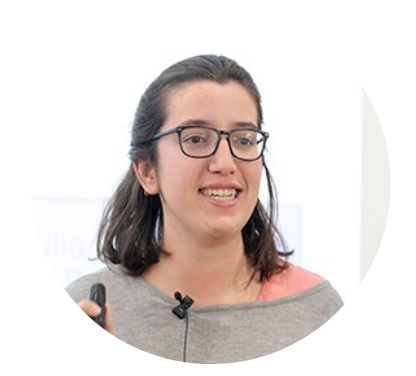 Julia Casanueva holds a PhD at Laboratoire de l'accélérateur linéaire (Orsay). Her focus was on the Control of the Gravitational Wave Interferometric Detector Advanced Virgo, and her PhD thesis has been nominated as an outstanding Ph.D thesis by the University of Paris-Sud, Orsay, France. She currentely works at EGO as a researcher in the ISC group (Interferometer Sensing and Control).
Julia Casanueva holds a PhD at Laboratoire de l'accélérateur linéaire (Orsay). Her focus was on the Control of the Gravitational Wave Interferometric Detector Advanced Virgo, and her PhD thesis has been nominated as an outstanding Ph.D thesis by the University of Paris-Sud, Orsay, France. She currentely works at EGO as a researcher in the ISC group (Interferometer Sensing and Control). - Francesca Spagnuolo
-
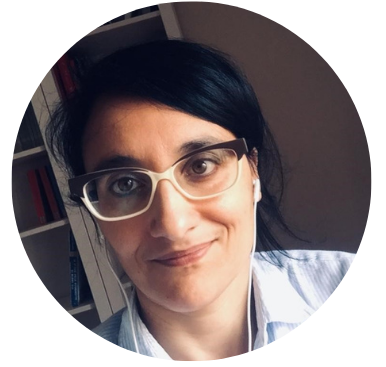 Francesca Spagnuolo is Project Officer of REINFORCE and EU Program Coordinator at European Gravitational Observatory. She holds a Master’s Degree in Political Science, with a major on EU integration, and a PhD in Law (European Administrative/Constitutional Law), both from the University of Pisa, where she is adjunct professor of European Administrative Comparative Law (2019-2020). She has worked for 15 years in the field of EU Law and European Administrative Law at the University of Pisa, the Joint Research Center of the European Commission (JRC- Ispra), Scuola Superiore Sant’Anna (SSSA-Pisa). and the Italian Council for Research in Agriculture (CREA-Rome). Since April 2009, she is Research Fellow within the Earth System Governance Project.
Francesca Spagnuolo is Project Officer of REINFORCE and EU Program Coordinator at European Gravitational Observatory. She holds a Master’s Degree in Political Science, with a major on EU integration, and a PhD in Law (European Administrative/Constitutional Law), both from the University of Pisa, where she is adjunct professor of European Administrative Comparative Law (2019-2020). She has worked for 15 years in the field of EU Law and European Administrative Law at the University of Pisa, the Joint Research Center of the European Commission (JRC- Ispra), Scuola Superiore Sant’Anna (SSSA-Pisa). and the Italian Council for Research in Agriculture (CREA-Rome). Since April 2009, she is Research Fellow within the Earth System Governance Project. - Emmanuel Chaniotakis
-
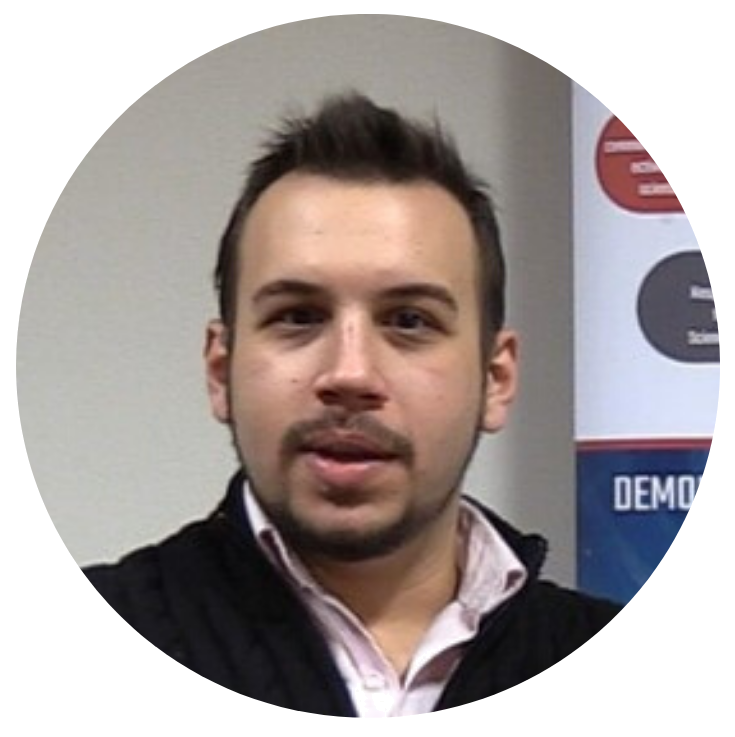 Emmanuel Chaniotakis is a Physicist and works as a researcher at the RnD department of Ellinogermaniki Agogi School in Greece. His work is focused on: the design and implementation of ICT-enhanced, inquiry based educational activities in the field of Physics; Teacher training and support in ICT- enhanced, inquiry based science education; the organization and support of international training activities such as summer schools and the organization of educational competitions. He is a PhD candidate in Science Education at the Faculty of Educational Studies of the National and Kapodistrian University of Athens.
Emmanuel Chaniotakis is a Physicist and works as a researcher at the RnD department of Ellinogermaniki Agogi School in Greece. His work is focused on: the design and implementation of ICT-enhanced, inquiry based educational activities in the field of Physics; Teacher training and support in ICT- enhanced, inquiry based science education; the organization and support of international training activities such as summer schools and the organization of educational competitions. He is a PhD candidate in Science Education at the Faculty of Educational Studies of the National and Kapodistrian University of Athens.
If you have any questions or need further information, please feel free to contact info@reinforceeu.eu
